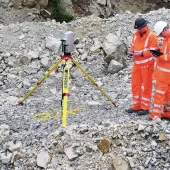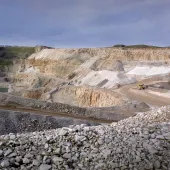MPA celebrates fifth anniversary

Five years after its creation the Mineral Products Association continues to go from strength to strength
THIS week marks the fifth anniversary of the Mineral Products Association (MPA), created in March 2009 by the merger of the Quarry Products Association, the British Cement Association and The Concrete Centre.
During what has arguably been the toughest five years in the industry’s history, the MPA’s membership has grown from 266 to 482, thanks to continuously attracting new members, coupled with the affiliations and other close working relationships the Association has with QPA Northern Ireland, MPA Scotland, British Precast, the British Association of Reinforcement and the Refined Bitumen Association.
In addition to its core activities, focusing on raising standards in health and safety, planning and permitting issues, restoration and biodiversity, economic and market analysis, carbon reduction, five English regions and MPA Wales, the MPA is unique in Europe, and possibly the world, by now representing 13 different product groups whose main focus is on technical standards and supply chain issues.
Together, these product groups represent the largest material flow in the economy – at around 250 million tonnes per annum – and more than 80% of all UK non-energy mineral production. These primary industries contribute £9 billion to the UK economy, whilst supplying industries worth £400 billion per annum. The sector is also the largest supplier to the £120 billion construction industry and supports more than 70,000 jobs.
Nigel Jackson (pictured), chief executive of the Association, said: ‘The MPA has become the sectoral voice for mineral products and quarrying, and is the only association that represents more than 90% of the industry, including the vast majority of SMEs as well as all the larger companies, both nationally and internationally.
‘Our uniquely integrated operating model and well-balanced and inclusive governance ensures that the interests of companies throughout the UK can be taken into account and a wide range of challenges solved, based on consensus. This is irrespective of whether the companies are small, medium or large, family owned or corporate.
‘I believe that the progress we have made in health and safety, particularly with regard to improving competence, sharing best practice, cycle safety and quarry safety, exposing the cumulative costs of environmental taxation and regulation, together with progress on biodiversity, technical standards, carbon reduction and sustainable development, underpinned by regular evidence-based annual reporting, is unrivalled and could not have been achieved by the previous piecemeal approach.’
Mr Jackson continued: ‘For any industry representation to be regarded as professional, progressive, innovative and competent, and to be able to respond to so many complex and cross-product issues, a sectoral approach throughout the supply chain is needed.
‘The MPA has transformed the sector’s representation and has ambitious plans to develop further and continue to grow the membership, having gained 14 new members over recent months alone. As the MPA has grown it has developed a clear and shared agenda to protect its members’ interests during difficult times and now speaks with an unambiguous, aligned and stronger voice.’









